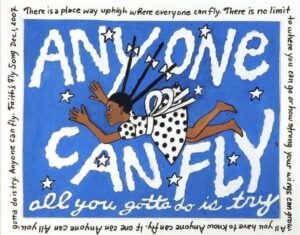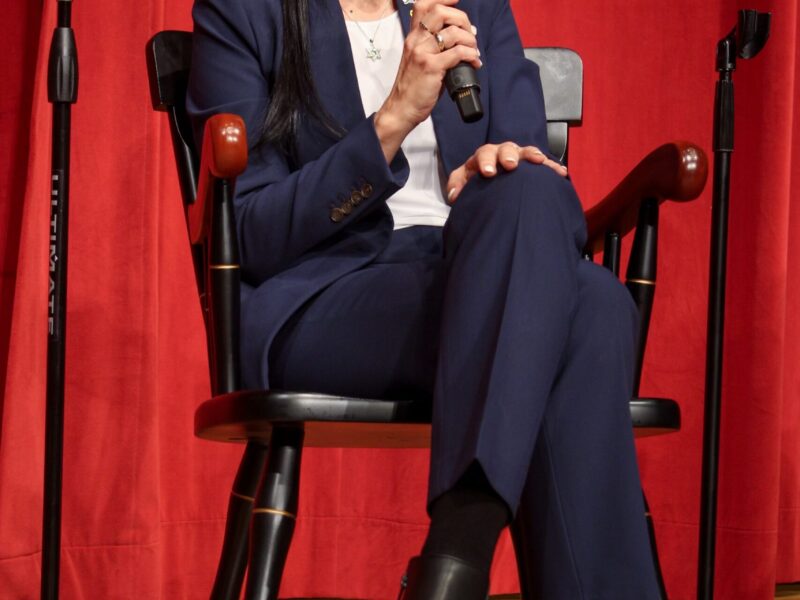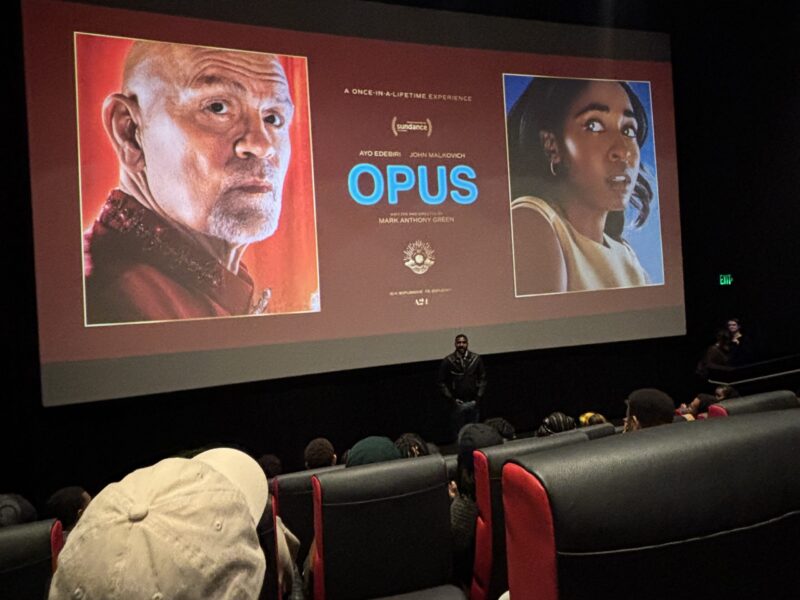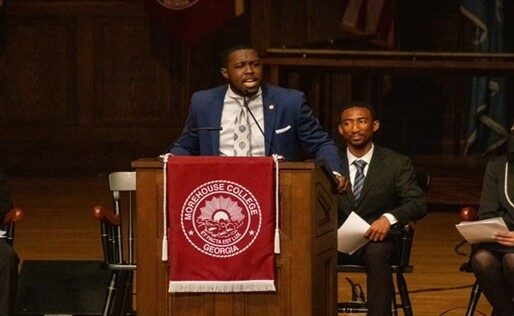How We Dream

By Kaylah Mack, Staff Writer
As a Teach for America corps member, Spelman alumna Taylor Roberts has the opportunity to pay homage to the South in the classroom by highlighting the region’s past and present through her lessons. Even in this current election season, she ensures that she gives glory to the place that birthed her.
Dedicating herself further, Roberts created How We Dream, a project that allows her to uphold her writing, the South, and the idea that “origin is forever.” This ongoing project showcases young black people putting theory into practice to imagine a better tomorrow, “one dream at a time.”
“This digital platform will document how history, institutions of power, and upbringing have all played a part in the way all black people navigate the present and imagine the future world,” Roberts said.
Roberts emphasizes the importance of dreams and imagination. It is with great hope that she can use How We Dream to promote origin stories and allow them to be an aid to push creators to create a better reality for generations to come.
Her ultimate goals are to write full time and to eventually get paid for creating novels. In particular, write the narratives and the truths of black people from the South and the United States. An additional career goal for Roberts would be to continue pursuing the route of education and working with youth by assisting them with their creative expressions; educating them on social justice; and highlighting the truths of black people, black history, and black culture which truly brings her infinite joy.
When Roberts first arrived on the campus of Spelman College in 2015, she was sure she wanted to pursue law. At the time, she was facing pressure from her mother who really wanted her to be a lawyer, and her aunt, who is both a lawyer and a Spelman alumna. While at Spelman, Roberts was a Political Science major confident that with this major and law in mind, this would get her “to the bag” and offer a life that would allow her to provide for her family.
Deep down Roberts knew that writing and education were embedded early on. It wasn’t until she obtained an internship in the Georgia House of Representative working with the Black Caucus that Roberts realized that Law wasn’t for her.
“Since I was young, I felt like it was something that I always knew. When I was little, I used to write and illustrate stories a lot. So much so that my first-grade teacher published one of my books because I was always writing in class. Writing was always something I knew I wanted to do, I just had to step into it.”
“ Moving along, it was after I took a class with Dr. Charania second semester of sophomore year and that class changed my life. We read a lot about Toni Morrison in her class which I believe kind of pushed me to say to myself, this is what you need to do. Political science doesn’t allow that creativity to come through in a way that Dr. Charania’s class did. Because this class opened me up, I realized that if I really wanted to understand and get some knowledge, I was going to have to step outside of the Political Science Department.”
Stepping outside the Political Science Department allowed Roberts to both confront and express herself freely. This gave her the ability to seek the truth, history, and storytelling, receiving confirmation from some of her favorite professors at Spelman like Dr. Spence and Dr. Smith helped as well.
Later, Roberts received an internship with the “Buried Truth Podcast” at NPR which covered the Civil Rights cold cases in Georgia and offered a whole new aspect of southern storytelling. At this very moment, Roberts knew that she was clearly a writer and storyteller. She made the conscious decision to refuse to underuse herself and to reach her full potential. Not only was it important that Roberts refuse to waste her creativity with writing but also in the classroom.
“Again, I come from a long line of educators and I always try to acknowledge origin and the ancestors. That is really important, they paved the way and they were here before us,” Roberts stated. “They’ve already walked long before we have ever walked. They have already led the path. If you want to see what you could do, what you have to do, and what you need to do, look at what they did.”
Education was the only next step that was making sense in her life because it forced her to dare to serve other people before serving herself. It even aided her writing.
“It allowed me to break down information in my mind to 6th graders while helping them speak up and use their voices through writing and understanding writing outside of standardized testing,” Roberts said. “To see writing as document keeping, history, creativity, expression, a way to channel your rage, and memorializing people. Writing is all of that.”
With the help of education and writing, Roberts allowed her passion and aspirations to fall into her lap effortlessly. How We Dream stirred from the classes that Roberts encountered during her academic career at Spelman. Every time she took notes in these classes, it always brought her back to the question of, “How does this relate to how black people dream?” Eventually, Roberts chose to allow these questions to determine her journey.
“I read the ‘Fire Next Time’ by James Baldwin and there was a part that I underlined, and it was in the My Dungeon Shook Letter. I had this quote underlined for some time now, and under this quote, I wrote the question, ‘how do black people dream?’ underneath which was a few years ago. This quote says: “You were born where you were born and faced the future that you faced because you were black and for no other reason. The limits of your ambition were, thus, expected to be set forever.”
This quote by Baldwin served as a catalyst to How We Dream coming about. Coincidently, Roberts announced this project on Baldwin’s birthday.

By Faith Ringgold
So, what’s next for Ms. Taylor Roberts? In June, she will finally conclude her Master’s Degree in Education and the Teach for America journey, with hopes of later furthering her education career by gaining a Doctorate Degree. Roberts plans to stay in the classroom post Teach for America and bring How We Dream further into fruition.
A piece of advice that Roberts would give to other young creators is to “Pace yourself.” When thinking of pacing oneself, the song “Forever Begins” by Common comes to mind for Roberts.
“I feel that often young creators try to rush themselves. One of the foundations of white supremacy that our country was built upon is this sense of urgency. That sense of urgency, if you fall into that and allow that to take over, that will mess you up. Rarely do others allow themselves to slow down. A lot of it is because of capitalism but as a creator, when you are creating a project that means so much to you, if you rush yourself, you won’t honor the truth in the process or the truth that unfolds as you are creating in that process.”
“When I think of the Atlanta University Center and how someone is always putting something out. How much of it is lasting? With “Forever Begins” in mind, if you want something to last forever, and tell a truthful story, the truth takes forever to unfold. Understand that pace cannot be set because of this concept of urgency. This pace cannot be set by our peers whenever we are scrolling on Instagram. You quite literally have to have patience and you have to live fearlessly. You cannot think that if you don’t post about it then what you’re doing doesn’t matter anymore. You don’t always have to push it out.”
Roberts has even dealt with this notion of urgency in How We Dream which caused her to learn more of the lesson of pacing oneself so that her own forever can begin.
Originally Roberts was supposed to present How We Dream at the beginning of August but it wasn’t quite ready yet. There was more life that needed to be lived and more lessons to be learned. This forced Roberts to honor her gospel truth without compromising herself.
“This is something that I would like to work on for the rest of my life,” Roberts said.
“Let’s understand that time is a construct and pace is not set by others. You just got to slow down, breathe, look at your product. It takes time. The great Toni Morrison, James Baldwin, took their time to write their books. They didn’t write this in a week or overnight. The pace isn’t set by you. You can’t rush what you want to last forever. You cannot feed into capitalist concepts.”
 By Taylor Roberts
By Taylor Roberts
A playlist dedicated to Taylor Roberts Below:
https://music.apple.com/us/playlist/how-we-dream/pl.u-76oN1XeCqV1KPv






